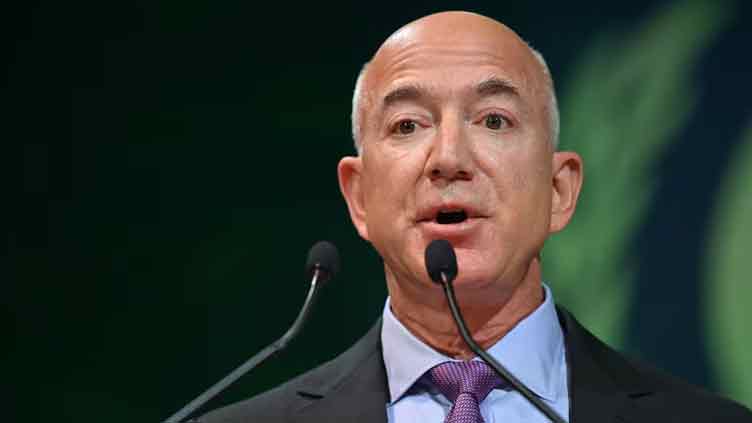Bezos sees no threat from Musk-Trump ties in space race

Technology
'Elon has been very clear that he's doing this for the public interest and not for his personal gain
CAPE CANAVERAL, Florida (Reuters) - Jeff Bezos said he does not think SpaceX CEO Elon Musk will use his close ties with U.S. President-elect Donald Trump to undercut his space company Blue Origin, adding he feels "very optimistic" about the incoming administration's space agenda.
"Elon has been very clear that he's doing this for the public interest and not for his personal gain. And I take him at face value," Bezos, founder of Blue Origin which rivals SpaceX in the space industry, told Reuters in an interview on Sunday.
Bezos spoke with Reuters in Cape Canaveral, Florida where he will watch the debut launch of Blue Origin's New Glenn, a 30 story-tall rocket that is expected to chip away at SpaceX's market dominance and kick start Blue Origin's long-delayed entrance in the satellite launch business.
Musk, who spent more than a quarter billion dollars to help elect Trump, has had the president-elect's ear on space matters.
Last month he said the U.S. should send missions straight to Mars instead of going to the moon first, fueling industry concerns of a major shakeup to NASA's space exploration program.
"My own opinion is that we should do both - we need to go to the moon and we should go to Mars," Bezos said, when asked if he was concerned about changes to NASA's moon program.
"What we shouldn't do is start and stop things. We should continue with the lunar program for sure," Bezos said.
Trump in his second term as president is expected to make sweeping changes to NASA's moon program and focus heavily on sending missions to Mars.
Amazon (AMZN.O) has donated $1 million to Trump's inauguration fund and will stream the event on its Prime Video service. Bezos, Amazon's founder and executive chairman, has met with Trump but told Reuters "we really haven't talked about space."
Blue Origin, founded by Bezos in 2000, has a $3 billion contract with NASA to land humans on the moon later this decade after missions by SpaceX's Starship, Musk's fully reusable rocket in development that is designed to put humans and cargo on both the moon and Mars.


